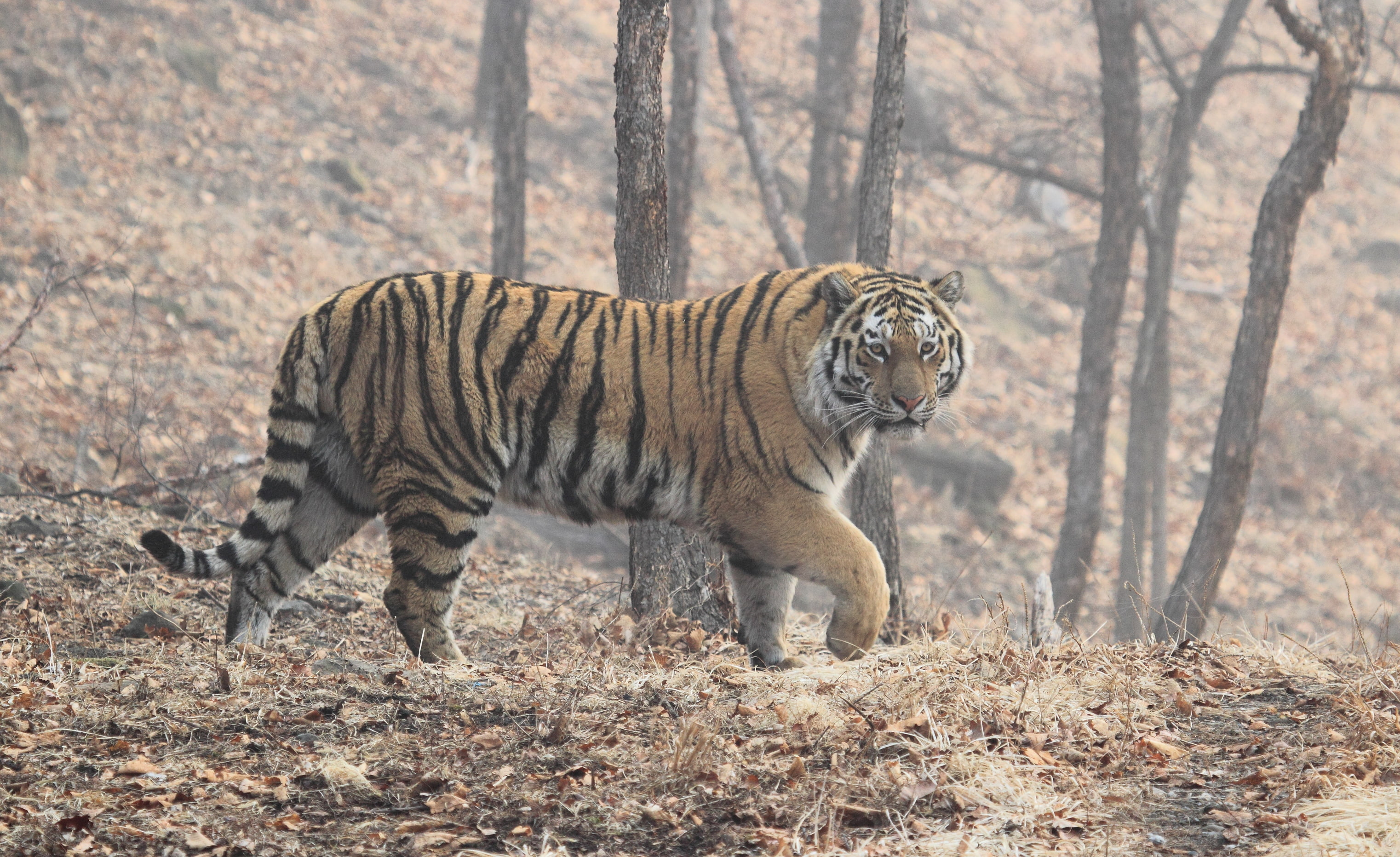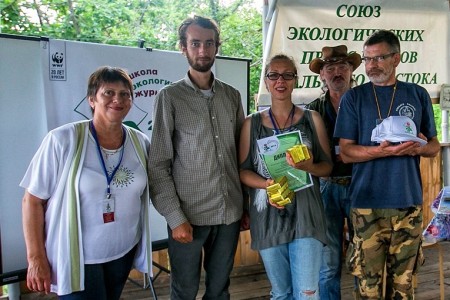On the shores of the Sea of Japan in the Khasansky district of Primorye, a solemn ceremony of awarding the winners and laureates of the Far Eastern contest of environmental journalism “Alive taiga-2015” took place. The environmental diploma "Last Wednesday" (Vladivostok) was awarded to the special diploma "For Asceticism" - the authors of the media project "Journalistic Reserve Watch: student group Tiger in the Sikhote-Alin Nature Reserve, organized by the Amur Tiger Center and Sikhote-Alin Reserve.
In 2014, on the land of Sikhote-Alin, journalists were in charge of their watch, who for two months covered the work of the first in the history of the student reserve group Tiger on the improvement of the ecological trail “Cape Severny”. A unique project in the online mode of terney created posts in social networks, materials, video reports and photo reports. The whole country learned about the student detachment, and already in the second convocation - “Tiger-2015” —future ecologists, game managers and veterinarians from Moscow, St. Petersburg, Voronezh and Novosibirsk arrived to continue the eco-path arrangement with the students of the Primorye State Agricultural Academy.
Journalists Maxim Geiman (GTRK Vladivostok and KGBU “Public Television of Primorye”), Alexander Khitrov (photo correspondent of RIA PrimaMedia), Valery Kuzora (correspondent of IA VLADNEWS), Tatyana Mazneva (editor of RIA Vostok-Media), Maxim Sidorenko TV cameraman TV Center, Moscow), Polina Shchekina (photographer, PR specialist), Marina Bozhko (Internet editor of the Zolotoy Rog newspaper and Far Eastern Capital magazine) collected and filmed materials that formed the basis for the documentary films The Path of the Tiger and "Sikhote-Alin Reserved Land". They were first seen and highly appreciated by members of the jury of the Alive Taiga contest, and now they can be viewed in the on-board cinema of Aeroflot.
“The importance of journalism in nature conservation is hard to overestimate. Sometimes accurate reporting by journalists and fair analytical reviews allow raising a serious environmental problem that requires solutions from the state. In essence, journalists are the part of the people who have more chances that the society will hear it or the state will understand,”comments Sergey Aramilev, director of the Primorsky branch of the Amur Tiger Center. - “Projects such as the School of Environmental Journalism make a huge contribution to improving the environmental awareness of journalists, as well as the whole society. We clearly see this by the high level of materials submitted to the “Alive Taiga” competition this year.”
Rewarding of winners and laureates of the contest took place within the school of environmental journalism. It was organized by the Amur tiger Center. For journalists of the Far East and TRANS-Baikal territory Sergey Aramilev conducted a session on "Conservation of the Amur tiger, the preliminary results of the one-time accounting 2014/2015, strategy and trends."
Dmitry Gorshkov, Director of Sikhote-Alinsky reserve, which celebrates this year the 80th anniversary, spoke about the anniversary celebrations and the ongoing work of the student team "Tiger 2015" on the improvement of ecological trails.
“I am proud of the path the "Cape Severny", which we equip with the students and consider it one of the best in Russia and on a global level. This year we have it a little fix, so she had time to settle down, and the inhabitants of the taiga was getting used to her. In the conservation system, and our reserve, talks about the feasibility or ecological tourism in especially protected natural territories. I believe that in moderate and well-organized amounts, it is all right to the benefit of both people and the reserve. In this direction we work and here we need the help of journalists,” - said Dmitry Gorshkov.
The work of the student environmental unit "Tiger" is aimed at drawing attention to the problem of preserving wildlife in general and the Amur tiger in particular, developing the volunteer movement and ecotourism in the Far East, supporting the creation of infrastructure in national parks and reserves, and work in protected areas of theoretical and practical knowledge and skills.
The project STUDENT TEAM TIGER is carried out with the financial support of the State Atomic Energy Corporation ROSATOM and the company TENEX.

